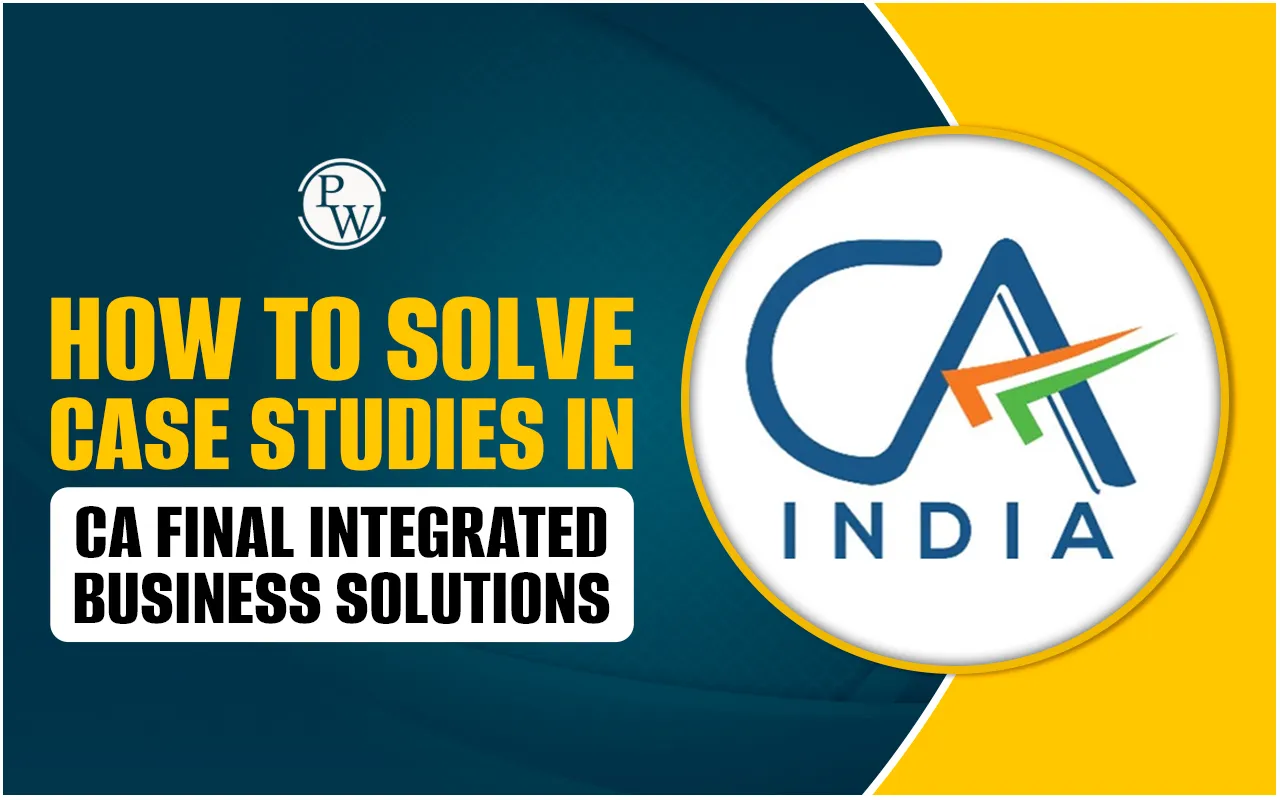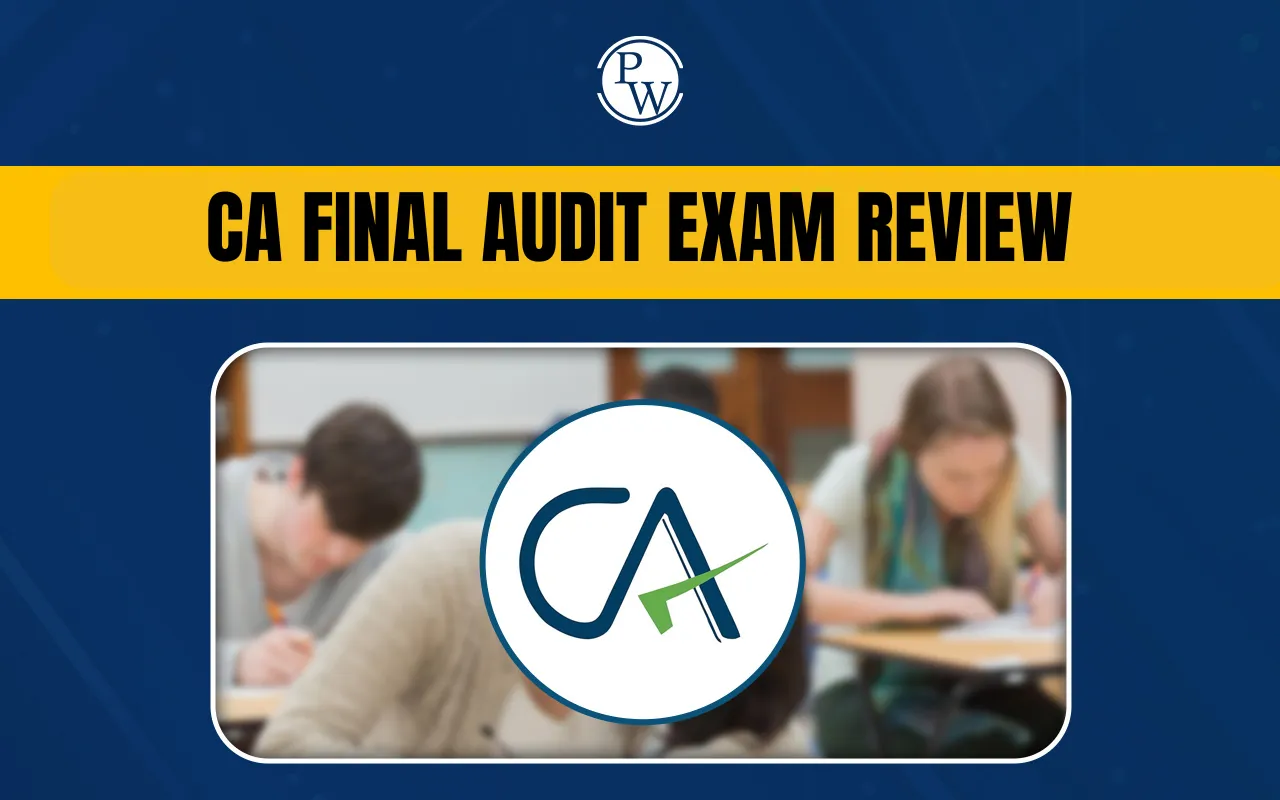
Case Study-Based Questions in CA Final have become a crucial part of the exam, testing not only theoretical knowledge but also analytical and decision-making skills. These questions present real-world business scenarios, requiring students to apply frameworks, theories, and logical reasoning to derive solutions.
Many students find these questions challenging, but with the right approach and practice, they can be tackled effectively. Here, we will explore the best strategies to attempt Case Study-Based Questions in CA Final to help you score well and excel in your CA Final exams.
Case Study-Based Questions in CA Final
Case Study-Based Questions in CA Final are designed to test a candidate's ability to analyze real-world business problems and apply theoretical concepts to derive solutions. These questions are structured in a story format, presenting a scenario with facts and issues, followed by specific questions requiring recommendations, strategies, and evaluations.
Candidates appearing for the CA Final must develop a logical and structured approach to tackle these questions efficiently. With rigorous practice through CA Final Test Series, students can sharpen their problem-solving skills and enhance their ability to link theoretical knowledge with practical application.
What is Being Tested in Case Study-Based Questions in CA Final?
Case study-based questions are designed to assess a candidate’s ability to apply theoretical knowledge to real-life business scenarios. These questions test multiple competencies essential for a CA Final aspirant.
Evaluation of Cost Management Techniques
One of the key areas tested in Case Study-Based Questions in CA Final is the application of cost management techniques in real-life business situations. Candidates need to demonstrate their ability to analyze cost structures, optimize expenses, and enhance profitability using advanced cost accounting methods.
Performance Management in Business Scenarios
These questions assess a candidate’s grasp of performance management techniques. Candidates must evaluate various performance indicators, analyze efficiency, and suggest improvements in operational processes to achieve organizational goals.
Decision-Making and Stakeholder Value Creation
The ability to make informed and strategic business decisions is crucial in Case Study-Based Questions in CA Final. Students must provide logical recommendations that enhance stakeholder value while considering financial, strategic, and ethical aspects.
Integration of Multiple Financial Concepts
Successful candidates demonstrate a strong understanding of inter-linkages between cost management, strategic management, financial management, and performance management. This holistic approach ensures that the organization functions efficiently and remains competitive in the market.
How to Approach Case Study-Based Questions in CA Final?
Successfully tackling case study-based questions requires a structured approach. Understanding the problem statement, analyzing key facts, and forming logical solutions are crucial steps in answering them effectively.
Step 1: Read the Case Study Thoroughly
The first and most crucial step in attempting Case Study-Based Questions in CA Final is reading the entire case study with a calm and analytical mindset. Underline key facts, identify the main issues, and highlight numerical data essential for calculations.
Step 2: Understand the Question Requirement
Each question following the case study requires a specific approach. Some may ask for recommendations, while others demand evaluations or strategic solutions. Ensure clarity on what is expected in your answer before proceeding with your response.
Step 3: Develop a Mental Plan
Before writing, create a structured framework to analyze the Case Study-Based Questions in CA Final efficiently. Identify key issues, potential solutions, and the theoretical concepts that need to be applied to arrive at a well-reasoned answer.
Step 4: Identify and Analyze Possible Solutions
For every issue identified in the case study, list possible solutions and alternatives. Weigh their pros and cons, ensuring that the proposed recommendations align with the management’s objectives and are backed by relevant theoretical frameworks.
Step 5: Structure Your Answer Logically
Start answering the questions in a structured manner. Provide a clear introduction, followed by a detailed analysis of the issues, and conclude with well-justified recommendations. Ensure logical flow and avoid unnecessary elaboration.
Step 6: Justify Your Recommendations
Your recommendations should be based on solid analysis. Explain what needs to be done, why it should be done, and how it should be implemented. Ensure your reasoning is backed by relevant financial, strategic, and cost management principles.
Step 7: Avoid New Points in Recommendations
The recommendation section should only summarize the previously discussed points. Avoid introducing new issues or points at this stage to maintain coherence in your answer.
FAQs
What is the best way to prepare for Case Study-Based Questions in CA Final?
How can I improve my time management for Case Study-Based Questions in CA Final?
How should I structure my answer for Case Study-Based Questions in CA Final?
What common mistakes should I avoid in Case Study-Based Questions in CA Final?










